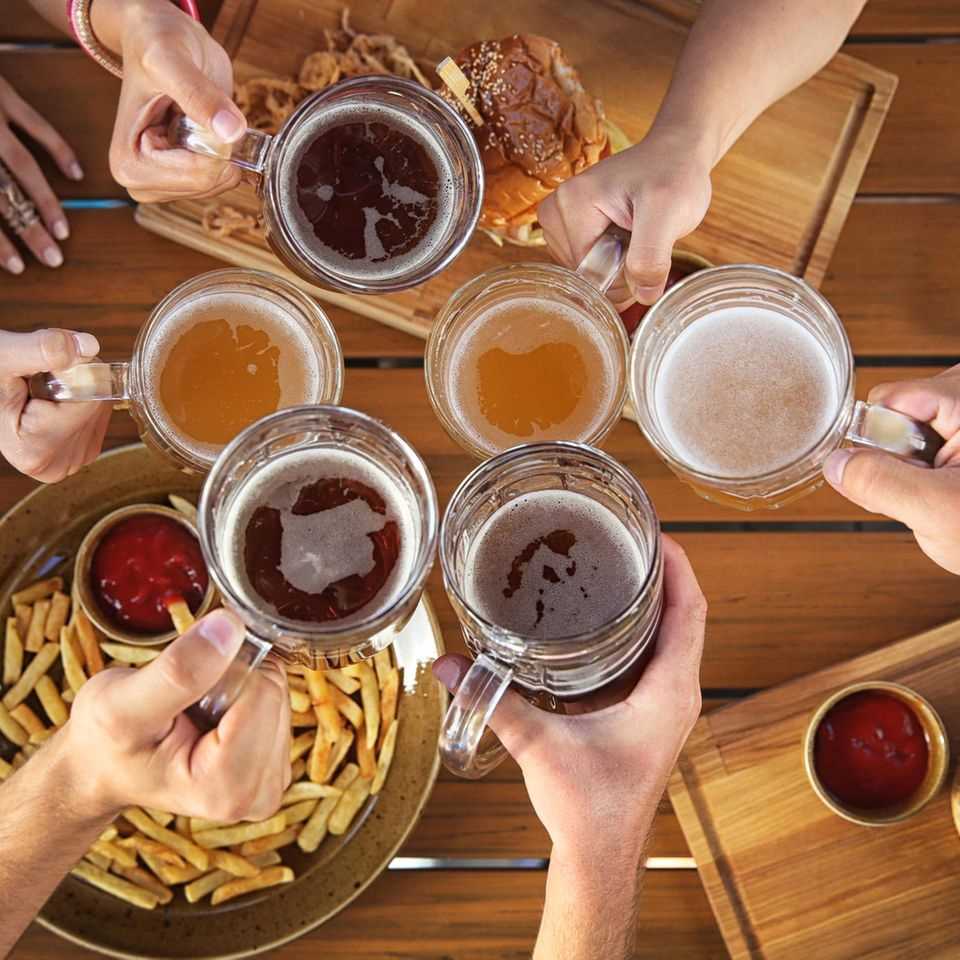Healthy eating
8 foods that aren’t as healthy as thought
© Africa Studio / Shutterstock
We like to divide food into “healthy” and “unhealthy”. But it’s not always that simple – because some foods are not at all healthy, as we always thought.
Fruits and vegetables are good for us, sweets are harmful – right? Unfortunately, it’s not always that simple. Because as the famous doctor Paracelsus already knew: the dose makes the poison. Because there are foods that are very healthy for us in small quantities, but can also harm us in large quantities. In addition, no two people are the same – and so our diet is also a very individual matter.
Nevertheless, there are some foods that experts can agree on whose health benefits. And some that are actually not as healthy as we always thought.
These 8 foods are less healthy than expected
1. Peas
Peas are one of the particularly starchy vegetables. So they have a much higher carbohydrate and calorie content than other vegetables. So with peas you should keep moderation if you want to pay attention to a balanced diet.
2. Broccoli
The cruciferous broccoli has many positive health effects – it is low in calories and rich in vitamins B, C and K as well as calcium and potassium. But: Broccoli is also very rich in fiber, and we can only digest this fiber in the large intestine. This can lead to digestive problems such as gas. So if you suffer from irritable bowel syndrome, for example, you should be careful here.
3. Agave syrup
Agave syrup or agave syrup is very popular as an alternative to sugar. But is it really that much healthier? Not necessarily. Because yes: agave syrup contains fewer calories and less glucose than table sugar – this does not drive the blood sugar level up as quickly. Agave syrup has a lot of fructose, and large amounts of it are just as unhealthy as glucose.
4. Fruit
Speaking of sugar: When it comes to fruits, most people only think of the health-promoting vitamins. In fact, fruit is often very sugary, especially dates, cherries or bananas and dried fruit in general. You should therefore rather enjoy these fruits in moderation and use more for low-sugar fruits such as berries. And: This hidden sugar can of course also be found in smoothies, juices and fruit yoghurt.
5. Eggplant
Eggplants have several health benefits as they are low in calories and high in fiber. But they can soak up fat and spices while cooking – and thus become a hidden calorie trap. So here you should pay attention to what you combine the vegetables with.
6. Rice
We often consider rice to be a lighter source of carbohydrates than pasta, for example. But how healthy it really is depends primarily on how the rice grains are processed. With classic white rice, the shell, the so-called silver skin and the seedling are removed – so only the starchy core of the rice grain remains, and the white rice hardly has any nutrients.
So-called parboiled rice is a little healthier because it is soaked and treated with steam pressure before peeling. In this way, the nutrients migrate inside the grain, and the rice still retains around 80 percent of its vitamins and minerals. Whole grain rice, also known as brown rice, is the healthiest. Because here the grain stays whole and still contains all beneficial vitamins, fiber and Co.
7. Low-fat + light products
Many people like to use diet products and light variants of foods such as yoghurt, cheese and Co. Unfortunately, these are usually not really healthier than the full fat variants, because the manufacturers like to compensate for the missing fat with sugar or sweeteners.
8. Vegetable oils
Many people fear an increased risk of cardiovascular disease with butter, which is why they prefer to use rapeseed oil or sunflower oil for frying and cooking. The problem with vegetable oils: They are rich in the unhealthy polyunsaturated omega-6 fatty acids. If they are not balanced by the healthier omega-3 fatty acids, they can, for example, promote inflammation in the body. These oils are also often highly processed – the organic version or other fats such as avocado or olive oil are always healthier.
Sources used: quarks.de, codecheck.info, utopia.de


